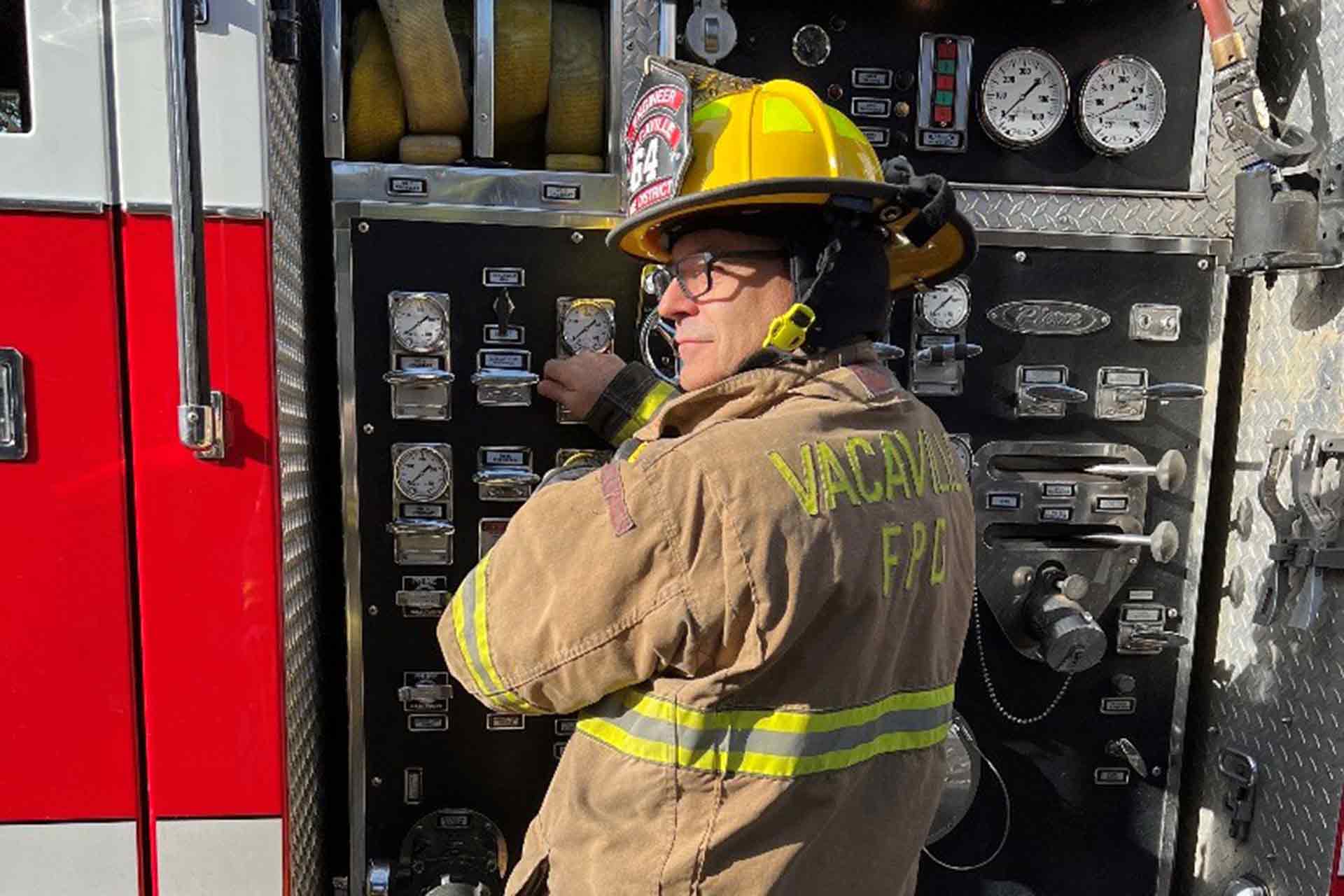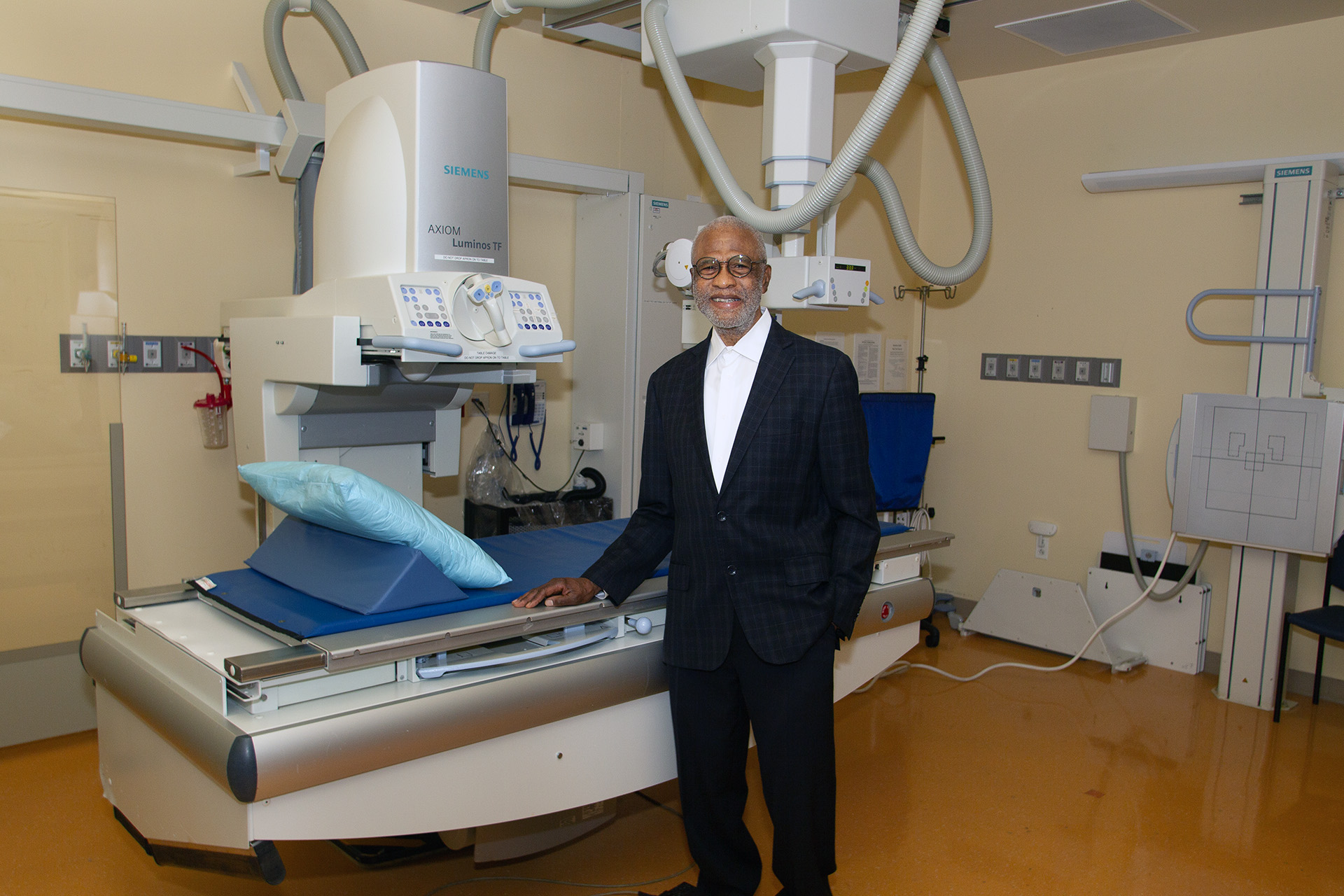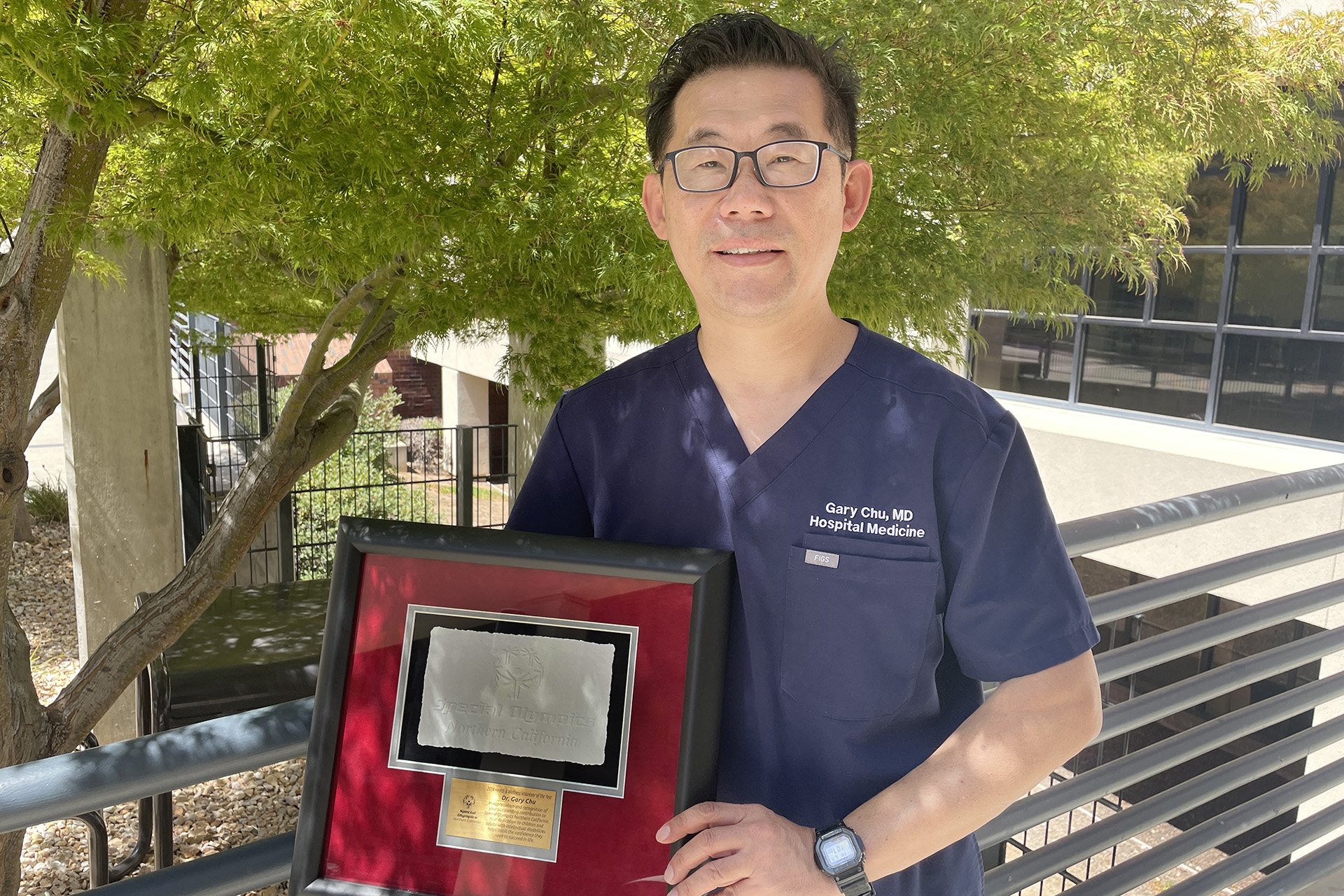Most people working a demanding job as a trauma surgeon would not volunteer on their off hours.
But Robert Jacoby, MD, a physician at Kaiser Permanente Vacaville Medical Center, is not most people.
When he’s not on duty as a doctor, he’s on call as a volunteer firefighter.
That may encompass anything from fighting off structure and outdoor blazes with Cal Fire to supporting emergency personnel with lifting or administering basic first aid to injured people.
A new chapter
A year ago, Dr. Jacoby stepped down as an assistant medical director at Kaiser Permanente Vacaville in order to “let some of the younger generation take over.”
“It just seemed like the natural thing to do to make sure that our leadership is well trained and that the transition of leadership is seamless,” he explained.
Around the same time, Dr. Jacoby retired from the Navy Reserve after 25 years, leaving him with “a little bit of free time on my hands.”
He then decided to marry his first careers as a firefighter and paramedic with his medical career to apply as a volunteer for the Vacaville Fire Protection District, which at the time was short-staffed and happy to have him sign up and to train him.
“As a trauma surgeon, I’m going from zero to 60 and never know exactly what I’m going to see as far as the cases and the emergencies,” he said. “That has always been a part of my career. In the fire department, it’s very similar when you get that call.”
Dr. Jacoby carries a pager for the fire department on his off hours and responds to any emergency he is able to get to.
“Not all fire departments utilize volunteers,” he said. “I was fortunate to find a place that still allowed me to volunteer and not have so many restrictions that it wouldn’t fit in with my responsibilities at Kaiser Permanente.”
The big ‘why’
While Dr. Jacoby said the wildland fires are a lot of hard, strenuous work, “when the day is done and you sort of look back at what you’ve accomplished, it really makes you feel good.”
Over the past year he said the hardest emergency was an ATV accident in an orchard that proved fatal to 2 high-schoolers without helmets.
He cites his roots as a firefighter going back to 1985 for one reason for his volunteerism. But it has been the string of devastating Northern California wildfires that gave him “huge” motivation.
In 2000 he needed to evacuate his own family from a quickly spreading fire. (Not surprisingly, Dr. Jacoby went around his neighborhood to knock on doors and warn others who were unaware of the pressing danger.)
One of his rewards as a volunteer has been new friendships with fellow firefighters.
There was also the feeling of accomplishment when he was promoted to engineer, which requires leadership skills and an ability to maintain and operate the larger vehicles that must be ready to not only douse fires locally but sometimes be deployed to other areas.
The second question is: Is there an end date to the volunteerism?
“I’ll continue as long as I’m useful and my body holds up,” Dr. Jacoby said. “As long as I can keep up with the younger guys and I’m not a hinderance, then I’ll continue as long as they’ll have me.”





Comments (1)
Dr. Robert Jacoby, God bless you for continuing to care for folks in the community through your volunteer work as a firefighter. We need more people like you in the world!
Comments are closed.